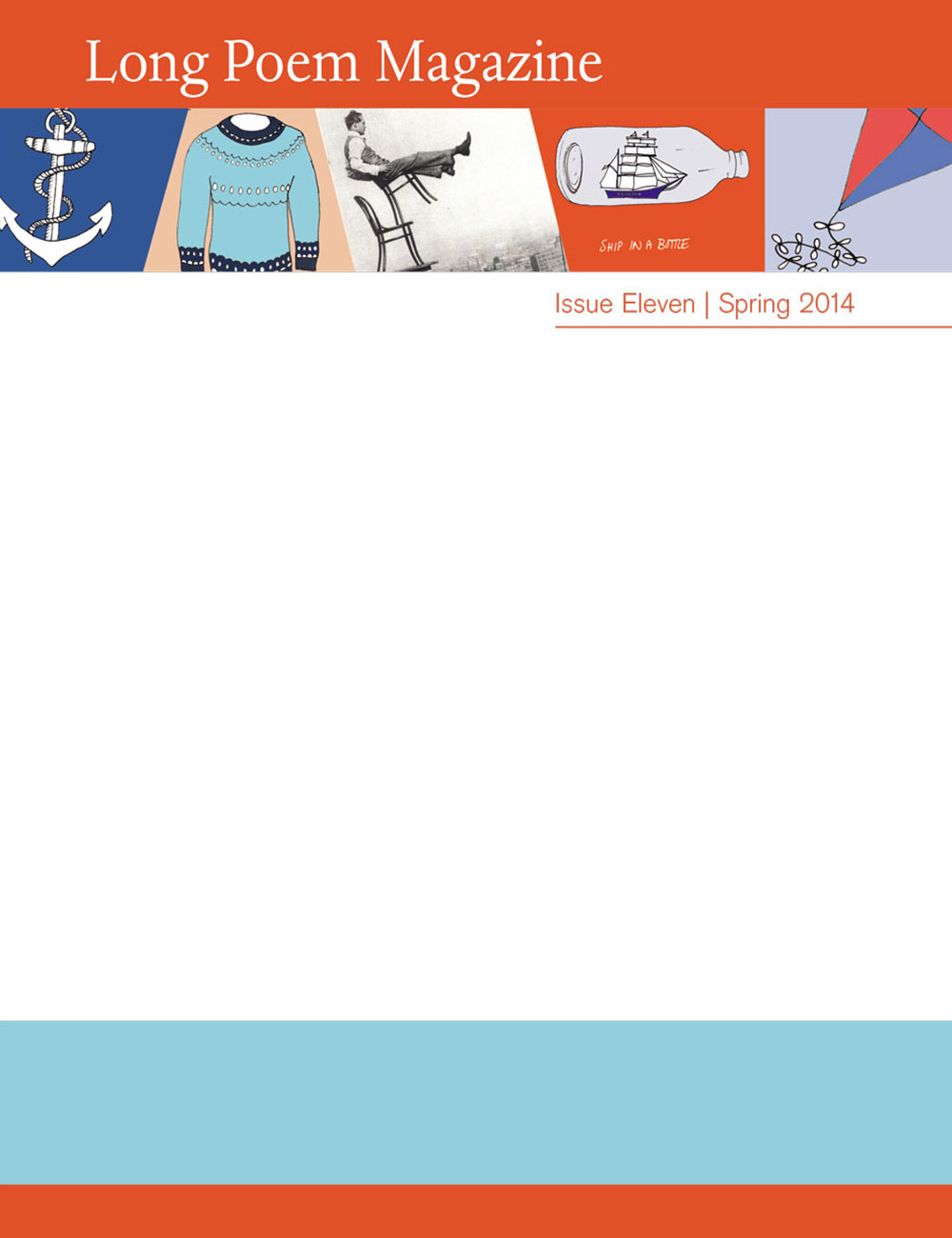Long Poem Magazine’s bi-annual launches at the Barbican Library (to whose staff we are most grateful) are friendly, well attended occasions, readers and audience, poets and poets mingling. More than once it has been said to us that you wouldn’t usually get poet X and poet Y attending the same poetry reading. This is our intention: to represent the broad range of contemporary poetics, from that which embodies personal experience and emotions – concrete, conveyable, able to be pinned down – to that which is more concerned with process, where words are tactile entities to be worked with – pliable, raw, unrestricted by conventional meaning, syntax, appearance. All this is rather like figurative/abstract art.
For me, sometimes it is the music of a poem that gives that tingle factor – sometimes it is in the ‘unsense’, when my mind can go somewhere unexpected, puzzling, exacting, exciting. Could the desire for continuity be something to do with fear, wanting to control the uncontrollable, make safe? Of course there is a place for all of this – the lyric, the beautiful through thread; the dislocated text that finds its place on a page, contained but expansive. There are times when I long to be logical, though I find it hard to achieve. Mostly, I’m listening – to in there, out there, whatever jumps into my mind, darting between sound, meaning, suggestion – merging, concocting, going I know not where. Reading outside one’s comfort range – reading, reading – be it Marcus Aurelius’s Meditations, Johnson’s Dictionary, or a manual on how to service a gas boiler (inc. RIGHTS OF THE BOARD IN REGARD TO METER FIXING), appropriating, making one’s own – can only serve to liberate and widen the remit of your own language. (I learnt this several years ago on a course taught for The Poetry School, by the inimitable Mimi Khalvati, entitled ‘Stealing the Language’). So too, working collaboratively with another poet.
A large proportion of the poetry books I’ve enjoyed, and been impressed with, over the past year come from some of the smaller presses, which I believe in supporting. The skill and accomplishments of the poets nominated for the TS Eliot prize in January was apparent, but how much more inclusive the nominations could be, dominated as they are by the five big publishing houses, who also publish most of the judges.
Long Poem Magazine puts all this in the same room – open the door and come on in….
Linda Black
